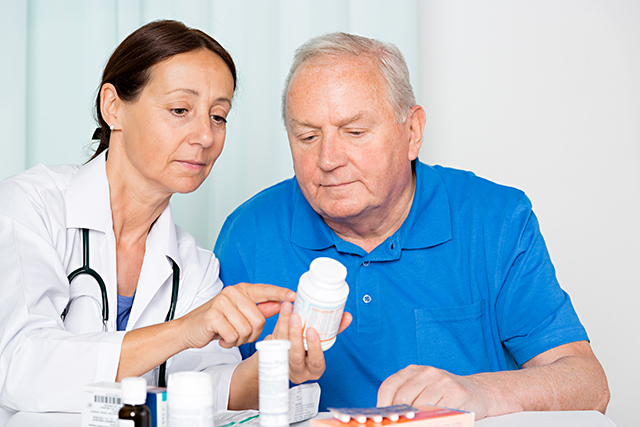What are some tips for speaking to patients about adherence to oral cancer medications? — Name withheld on request
Adherence to oral chemotherapy as well as the associated monitoring for toxicity and efficacy is critical to promoting a positive cancer outcome. Patients may be either nonadherent (taking lower doses or taking medications less frequently than prescribed), or overadherent (taking higher doses, taking medications more frequently than prescribed, or not complying with recommendations to interrupt therapy due to toxicity). This may be inadvertent (such as being confused about medication instructions, or forgetting to take doses), or intentional (such as taking less drug than prescribed due to cost concerns or taking more drug in hopes of improved efficacy).
Discussions with patients on adherence should be conducted routinely and in an open, nonjudgmental manner. Studies have shown that routine discussions on adherence may help to improve adherence rates for chronic medications, as it emphasizes to the patient that adherence is important. Asking open-ended questions (questions that cannot be answered with a “yes” or “no”) is also very helpful, as these have been shown to result in the patient providing more details and with better accuracy. For example, rather than asking “Have you missed any doses of your chemotherapy this cycle?” A more helpful question may be “How many doses of your chemotherapy have you missed this cycle?” Patients may feel that admitting to nonadherence means they are disappointing their providers or being a “bad” patient. Being nonjudgmental will increase the likelihood that a patient will feel comfortable admitting to non adherence.
Once the discussion on adherence has occurred, relating your recommendations back to the specific factors that may be contributing to the patient’s nonadherence is important. These issues may be related to financial toxicity, lack of understanding of their treatment and its risks and benefits, logistical challenges (eg, transportation issues preventing timely lab draws), forgetfulness, or a host of other issues. You should work with the patient (and their caregivers, as appropriate) to develop a plan that addresses these issues in a way that is acceptable to the patient. Ensuring that the treatment plan and the means of promoting adherence are congruent with the patient’s priorities is an important factor in encouraging optimal adherence to the treatment plan.
Drug Enforcement Agency (DEA) Drug Take-Back Day
The most recent DEA Drug Take-Back Day events occurred at more than 5800 locations, and more than 457 tons of unused medications were collected. These events prevent diversion of medicines as well as protect our environment by reducing the amount of medications in landfills. The next event is in April 2019; information for patients seeking to dispose of unused medications before then is available at https://takebackday.dea.gov/.
